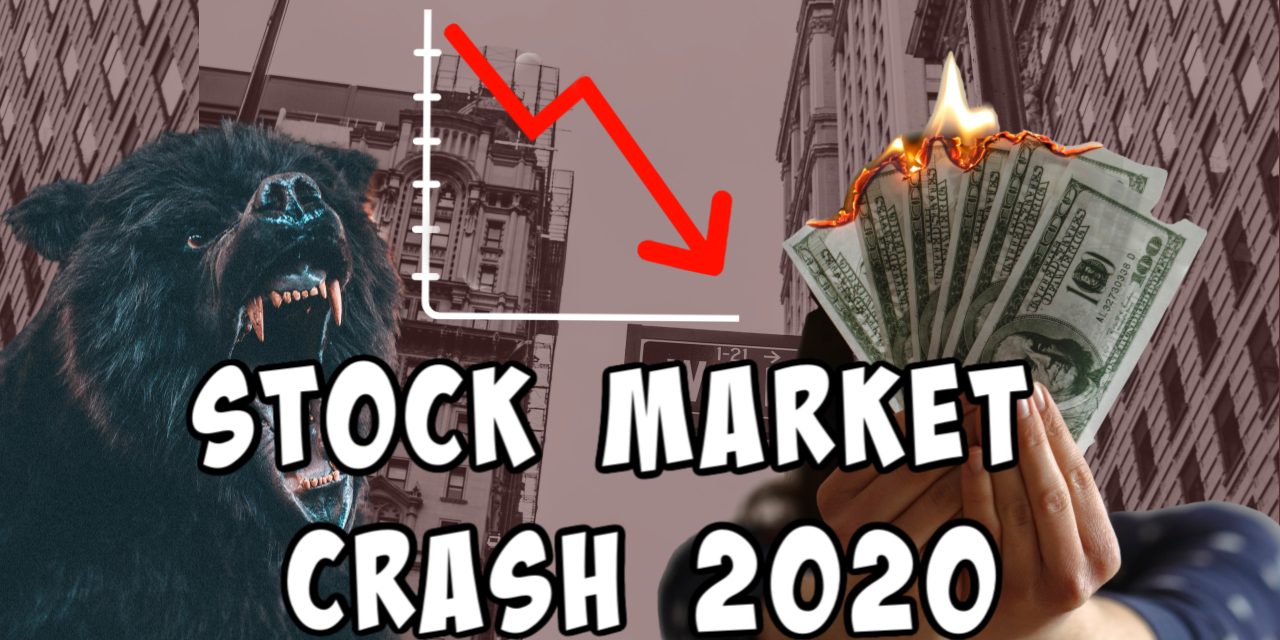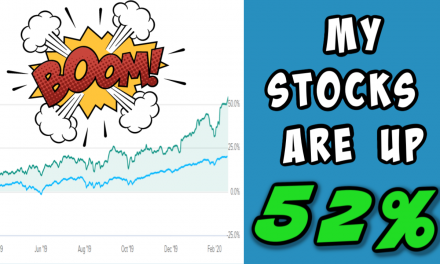Recession is looming! there’s a stock market crash coming! the bubble is about to burst! …But is it? Investors are extremely optimistic and the market is at an all time high. For some, it’s a little scary so in this article I’m going to help you put your mind at ease and go over what smart investors like YOU should do right now. .
Always remain invested
In other words, don’t panic sell. From time to time just rebalance your portfolio by trimming shares from your holdings that are overvalued and rotating it into companies that are undervalued.
We see sector rotations happening all the time. When there’s a big selloff in tech, investors start looking for a safe haven and pile into safer sectors like utilities and consumer staples instead. When investors start feeling confident again, they start putting money back into the riskier names.
So there’s almost always a beaten down sector in any market so it’s never hard to find a new opportunity. Sometimes the market just won’t give in and valuations are stretched across the board so keep holding but don’t put any new money into stocks.
As much as I try to remain fully invested sometimes there’s nothing out there to put new money into. In this situation, all you can do is stay on the sidelines. Just keep stocking up on gunpowder and get ready to fire when there’s finally a selloff. Holding cash is better than buying overvalued stocks.
Use SMART hedging
Now there are many ways to hedge the market and protect yourself from a correction but there’s always a cost to doing that. I never buy puts or short an entire index like the S&P 500 or the Nasdaq.
What I do instead is keep some short positions in individual companies. Currently I’m only shorting Harley-Davidson and Wayfair.
Short selling is not for everyone. For one, you have to pay interest since you are borrowing the shares. If the company pays a dividend, you have to cover that too. Even though the most you could ever make on your investment is 100%, your losses are infinite.
So the odds are really stacked against you when you short sell. That’s why I only have a short position open in a company if I really believe in it.
Play defence
If you are more of the conservative type of investor and can’t stomach volatility at all you might want to have more exposure to defensive sectors and make your portfolio a little more recession proof.
Utilities, consumer staples and select reits are all good choices. Having absolutely no exposure to high growth stocks is just silly. Especially when we are going through a technology revolution right now.
But if you want a smoother ride or you’re 50..maybe 60 years old and you’re at that retirement age, you’re going to want to be overweight in defensive sectors.
Last but not least, don’t panic.
At the end of the day, we have no control over economic cycles or what the fed is going to do with interest rates. We can really only guess. And since guessing has no place in making investment decisions, it’s better to just ignore it. That includes ignoring all the talking heads you see on the popular business channels.
Rarely do you see people on there giving insightful information or bias opinions stocks they are long on or short. For the most part it’s just noise. The best thing to do is to look at the stocks you own as individual companies without checking market updates or day to day price swings. Just like you are not checking how much your house is worth everyday, you don’t need to do it with the stocks you own either.
Final Thoughts
We’ve all read the headlines. We see fear mongers coming on the business channel like Marc Faber telling us to get ready for a massive stock market decline. In fact, he’s been making these predictions since 2012. Now I am not going to try to predict when the next recession is or when a correction is coming.
We don’t know. Nobody does. Even famous economists can’t accurately predict this so if you want to give it a shot, have fun. When a big selloff does come our way and everyone is panicking, make sure you panic and start buying. Happy investing.






Recent Comments